Vote Now! Top Space Stories of the Week - July 1, 2012
Big Bang, God and Astronauts from Space

In the last week we've seen two space missions return to Earth, found out Americans think Barack Obama - not Mitt Romney - is best suited to defend Earth from aliens, and saw some amazing new astronomy discoveries. But which story reigns supreme?
Root for your favorite space news story of the week here in our latest voting round!
FIRST STOP: Big Bang Didn't Need God
Big Bang Didn't Need God

Our universe could have popped into existence 13.7 billion years ago without any divine help whatsoever, researchers say. God, they add, isn't necessary for the equation. [Full Story
NEXT STOP: Mining the Solar System
Mining the Solar System

Mining the plentiful resources of the moon and near-Earth asteroids could alter the course of human history, adding trillions of dollars to the world economy and spurring our species' spread out into the solar system, a new breed of space enterpreneur says. [Full Story
NEXT STOP: Voyager Leaving Solar System
Voyager Leaving Solar System
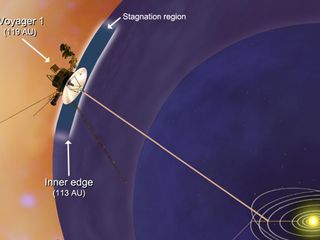
The Voyager 1 probe, a relic of the beginning of the Space Age, is still alive and kicking, and due to make history any day now. It's hard to tell exactly where the edge of the solar system lies, but scientists say Voyager 1 is measuring clues that suggest it's close. [Full Story]
NEXT STOP: Tornadoes on the Sun Explained
Sun Tornadoes Explained
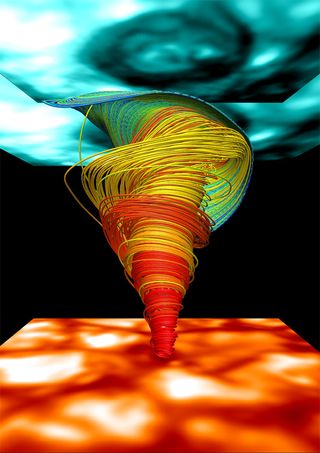
For years, scientists have struggled to determine why the sun's atmosphere is more than 300 times hotter than its surface. But a new study has found a possible answer: giant super-tornadoes on the sun that may be injecting heat into the outer layers of our star. [Full Story]
NEXT STOP: Alien Planet's Atmosphere Revealed
Alien Planet's Atmosphere Revealed
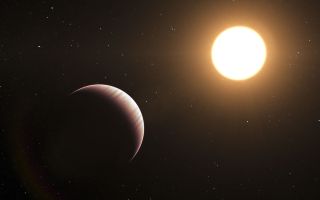
A new method used to scan the atmosphere of a distant "hot Jupiter" world could eventually reveal insights about many distant alien planets — including, perhaps, whether or not they support life, the researchers added. [Full Story]
NEXT STOP: Private Asteroid-Hunting Telescope
Private Asteroid-Hunting Telescope
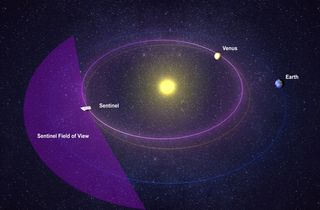
A private deep-space telescope will find 500,000 near-Earth asteroids in less than six years of operation, its builders say.
That may sound ambitious, especially since only about 10,000 such asteroids have been catalogued to date. But the Sentinel space telescope, which is slated to launch into orbit around the sun in five years or so, can deliver the goods, according to its mission team. [Full Story]
NEXT STOP: Water on Titan?
Water on Titan?
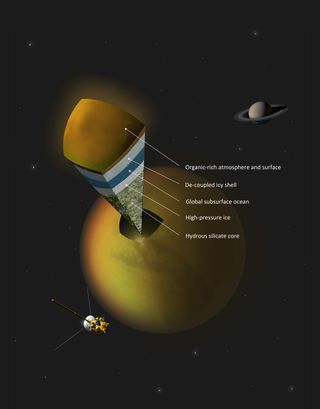
The best evidence yet for a liquid ocean buried under the surface of Saturn's moon Titan has been found, scientists report. New observations show that Titan warps during the gravitational tides it experiences, suggesting an ocean sloshes under its outer shell. This ocean has long been theorized but never confirmed. [Full Story]
NEXT STOP: Obama vs. Aliens
Obama vs. Aliens

Faced with the reality of an alien invasion of Earth, nearly two-thirds of Americans think Barack Obama would handle an alien invasion better than presidential candidate Mitt Romney, according to a new poll about extraterrestrials from the National Geographic Channel. No, really. [Full Story]NEXT STOP: China's Manned Space Mission Success
Chinese Space Capsule's Rough Landing

Three Chinese astronauts returned to Earth Thursday (June 28) after 13 days in space on a historic mission that made their country only the third nation ever to successfully dock a manned spacecraft to another in orbit. [Full Story]NEXT STOP: Oldest Impact Crater Found
Oldest Impact Crater Found
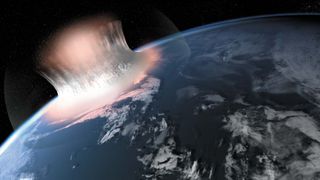
The world's oldest meteorite crater —a giant impact zone more than 62 miles wide — has been found in Greenland, scientists say. Scientists think it was formed 3 billion years ago by a meteorite 19 miles (30 kilometer) wide — which, if it hit Earth today, would wipe out all higher life. The crater is so wide that it would reach the edge of space 62 miles (100 km) above Earth if stood on end. [Full Story]NEXT STOP: Leap Second Means Longer Saturday
Join our Space Forums to keep talking space on the latest missions, night sky and more! And if you have a news tip, correction or comment, let us know at: community@space.com.
Get the Space.com Newsletter
Breaking space news, the latest updates on rocket launches, skywatching events and more!

Space.com is the premier source of space exploration, innovation and astronomy news, chronicling (and celebrating) humanity's ongoing expansion across the final frontier. Originally founded in 1999, Space.com is, and always has been, the passion of writers and editors who are space fans and also trained journalists. Our current news team consists of Editor-in-Chief Tariq Malik; Editor Hanneke Weitering, Senior Space Writer Mike Wall; Senior Writer Meghan Bartels; Senior Writer Chelsea Gohd, Senior Writer Tereza Pultarova and Staff Writer Alexander Cox, focusing on e-commerce. Senior Producer Steve Spaleta oversees our space videos, with Diana Whitcroft as our Social Media Editor.